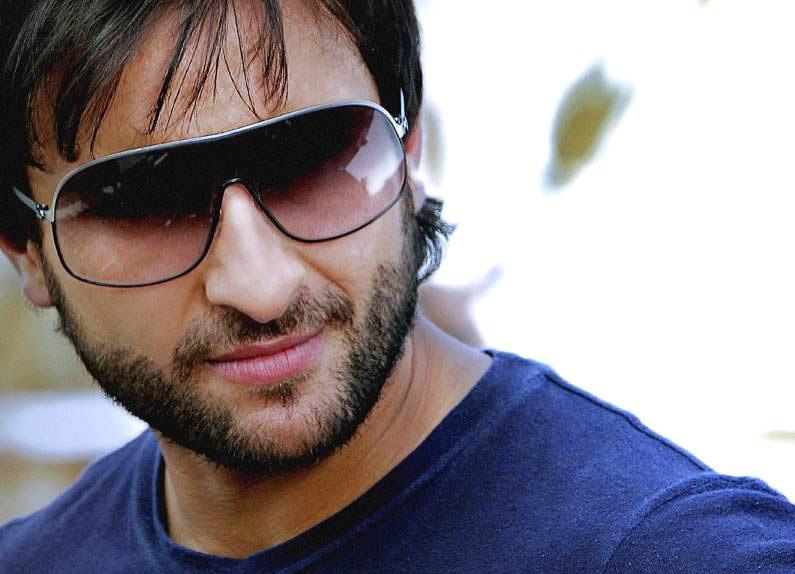
Saif Ali Khan son of a Hindu mother, Sharmila Tagore and Muslim father, Mansoor Ali Khan Pataudi, is married to Amrita Singh who is half-Muslim and half-Sikh. Keenly interested in studying philosophical and theological texts of all religions, he is remarkably well-informed
Saif grew up in Bhopal at the family estate at Pat-audi. Since his mother had also con-verted to Is-lam, his childhood was spent in a Muslim atmosphere. “My grandmother was the centre for all our religious education and theological expe-rience. She was widowed when my father was just two–years–old. People like that, dressed in white, gain an aura of purity. Something religious emanates from them, which can be calming or frightening, depending on which side of the fence you’re.
The older she grew, the more conscious she became of a culture in decline. Islam requires active practice and we were expected to represent the family at functions. In Bhopal and in Pataudi, people looked to us to lead the prayers. But my parents did not say do this or do that. The spiritual awareness happens when you are ready for it.
My grandmother made me read the Quran, which I now see as an academic understanding of our culture and religion. I also appreciate it for its poetic value. As one gets older, one is reminded of how dramatically times change. The quest then is to go back to the time when one was happiest in the midst of the family and one wants to create the same kind of atmosphere for one’s own family. You acquire a thirst for your culture and are embarrassed if you are not equipped with your culture.
Religion played a major role in my upbringing. The servants were all devout Muslims. I played with the servants’ kids, which is why I am not class conscious at all. I saw Hinduism as a religion with a very active philosophy. We played Holi and I enjoyed it for the colour and the mess involved even though the maids would tell me that I would be flayed in heaven with cat–o–nine–tails. And that is terrifying for a five–year–old. But that remark also started my religious questioning, that obviously there was a difference between religions!
My grandmother was very active, she drove at 100 miles an hour, played tennis and played practical jokes on boring guests. The source of all this energy and vitality was her idea of religion. When I went to study in England, she was worried that I would become a Christian.
At school we had to get up at a quarter to nine — which was a comfortable hour to get up — and go to chapel for half–an–hour before we went to class. One day someone said: you are a Muslim, the Christians had fought the Crusades against Muslims, so why are you letting your religion down.
I went to the headmaster and said that I am a Muslim, so I won’t go to chapel. He said, ‘Fine’, and to my surprise he organised a Maulvi Saheb for the two Muslims in the school. This meant we had to get up early and meet him. And we just wanted to give him tea and send him away! The only Hindu in the school was cool about the chapel, primarily because he could get up late. In any case, praying with so many others was a nice way to start the morning.
Our daughter Sara is born Muslim, but we are parents of the ‘90s and don’t want to decide for her. I realise that a lot of religious practices are disciplinary by nature. Reciting Arabic poetry is not a bad way to start the morning. These spiritual values stay with you. Like saying, ‘Aadab’, comes naturally to me. The hand goes up automatically even when I am speaking to someone over the phone. My daughter doesn’t know the difference between aadab and namaste yet, but she knows that namaste is a general and safe way of greeting all Indians, while aadab is a different way of greeting the family. When she sees a Sikh, she auto-matically says, ‘Sat Sri Akal’. We are cool or rather massively open–minded about religious matters.
With my maternal grandparents I never discussed religion. But I have read the Gita four times as an artistic landmark though I don’t claim to have understood it. I have also read the Mahabharat and I feel that academically it is essential to know these things. I have also read Christian religious texts and I realise that we know nothing. Theologically, we are clueless and trying our best to co–exist. All religions have given me a cultural grounding and we have to keep trying to find our cultural address.
As told to Deepa Gahlot
